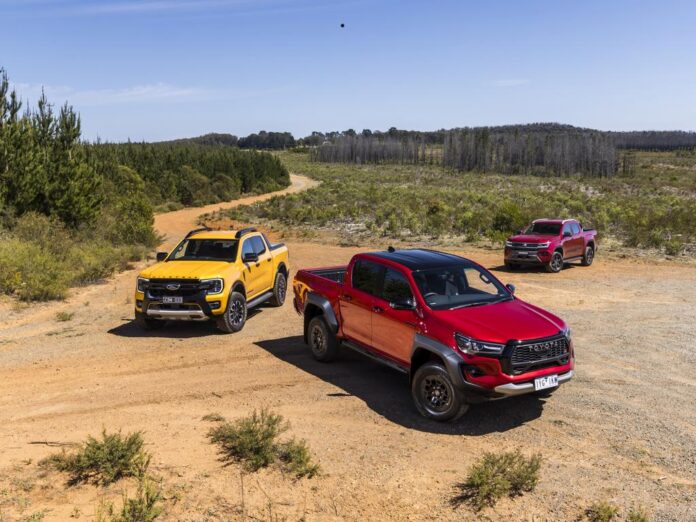Proposed emissions standards by the Albanese government could see Australian motorists paying significantly more for popular utes, with estimates suggesting an increase of up to $13,000 per vehicle.
Australian motorists could face a substantial increase in the prices of some of the country’s most popular cars under the Albanese government’s proposed new emissions standards. The Federal Chamber of Automotive Industries (FCAI) estimates indicate that vehicles like the Ford Ranger, the top-selling car in 2023, could incur penalties of up to $6150 under the proposed 2025 CO2 target.
FCAI Chief Executive Tony Weber expressed concerns about the lack of transparency regarding the government’s modeling of the potential price impacts. He emphasized the significant financial burden these standards could impose on consumers, both in terms of increased purchase costs and limited availability of certain models.
According to FCAI analysis, popular vehicles such as the Toyota LandCruiser and Tesla Model Y could face penalties as high as $13,250 and receive carbon credits of $15,390, respectively, under the new rules. The penalties incurred by other top-selling cars, such as the Toyota HiLux and Toyota RAV4, range from $2030 to $3880.
The proposed emissions standards aim to incentivize car manufacturers to sell more zero and low-emissions models to meet annual caps, which will progressively decrease until the end of the decade. Failure to comply with these standards could result in fines for manufacturers, potentially leading to reduced availability of popular ute and SUV models.
While the government insists that the standards will not restrict consumer choice or significantly impact prices, critics argue otherwise. Nationals Senator Matt Canavan highlighted potential cost increases for popular models, with estimates suggesting up to $9000 extra for vehicles like the Ford Ranger and Toyota HiLux.
Despite assurances from government officials, concerns remain about the affordability and practicality of transitioning to low-emission vehicles. Manufacturers may face challenges in meeting stringent emissions targets within the specified timeframe, leading to potential fines and increased costs for consumers.
The debate surrounding emissions standards reflects broader discussions about the automotive industry’s transition to electric vehicles (EVs) and the associated costs and challenges. As Australia seeks to align with international standards, policymakers must balance environmental objectives with consumer affordability and vehicle suitability for diverse needs and preferences.


